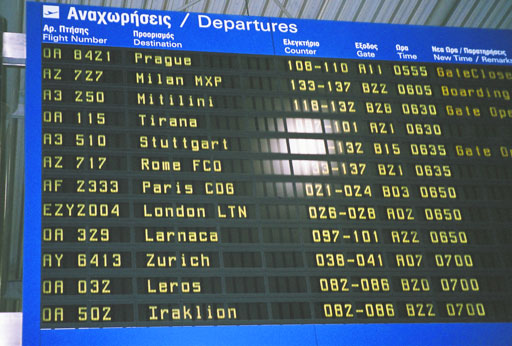
How to Avoid Travel Mishaps
What is there not to love about traveling to different locations and new places. It is always thrilling to anticipate new landscapes, architecture, people, culture, food, and more. Travel mishaps are the last thing you want to consider when planning a trip.
However, everything does not go according to plan every time.
In my family, we take travel safety and security seriously. Despite our best efforts, however, we have encountered trouble while traveling.
Could we have prevented the troubles? It’s not possible to say, but we have tried hard to learn from them.
Here is a list of things that I think you can never do enough of when it comes to travel to avoid or minimize travel mishaps:
1. Pre-Planning
If you want to be someone who travels often, you must create a travel system.
Start plotting potential trips months in advance. You have to back up the intentions with action. If you are traveling to a new destination, get travel books, and decide if you will need city and public transit maps to facilitate your planning. It is time to get serious about your planning when the maps and books arrive in the mail.
Even if you are traveling as part of a tour service, it is helpful to get resources to learn about the places you going to visit.
Create a working itinerary and always label it with the latest revision date, regardless of how simple or complex it is.
Get confirmations well in advance of your departure, and obtain written confirmation a few days before you depart.
If you are traveling in a group do not disseminate information on a need-to-know basis. Write notes about the discussions as they occur and share draft itineraries. This is a way to keep people in the loop. Indicate whether you are open or not open to feedback.
Distribute a printed or digital copy of the final itinerary to everyone traveling with you. Include flight numbers and details about your mode of transportation. Communicate arrivals and departures. Safeguard any printed copies, as you don’t want a stranger to come across your complete itinerary.
Also, provide a copy of the final itinerary to a trusted source who is not part of the travel group.
2. Ask Questions
Agree on who the spokes person for the group will be.
When you arrive at your destination, the spokes person asks questions of a trusted reliable source.
You want to confirm your understanding of places and events on your itinerary. Keep others in the loop of your findings. Communicate any changes to the plan promptly and obtain acknowledgments that each group member understands what the changes are.
3. Safety, and Transit Systems
Have a general understanding of basic rules and documents required to access services. Consider vaccines, travel, and health insurance. Decide what makes sense for you.
If you are renting vehicles or equipment, inspect and document any damage before signing any receipts.
Verify car rental company’s operating hours and whether someone will be present when you are expected to return your car.
Ask if there are other drop off locations incase you run into problems getting it to the agreed upon return location. Know what the procedures and time frames are to report accidents.
4. Have Contingency Plans
Have contingency plans. For example, do not only rely on electronics. Memorize the hotel’s name, its general location, and other pertinent information, or carry a note with that information.
Have a plan in the event the group gets separated. Does anyone go back to the hotel or does everyone participate in a search plan? Do you call the hotel and leave and retrieve messages until you regroup?
What if you loose luggage? Don’t put all of your eggs in one basket. Carry a change of clothes, you toothbrush and your medication in your carry-on in case your checked luggage is lost or temporarily delayed.
What if you lose your wallet or purse? Do not carry all of your credit cards and cash in one location, and know how to easily access your credit card companies to cancel any lost credit cards.
Another thing to do is keep a copy of your passport in a safe place in your luggage or accessible electronically. Include in this file a duplicate copy of all tickets, permits, and other printed or digital documents you will need during your trip.
5. Keep Track of Time
Switch your time to the time of your destination when you board your flight.
It is enticing to watch movies during flights, but this may not be the best idea. Sleeping may be a better idea if your arrival is early in the day, in the new time zone. Know the time and distance between travel locations.
If possible carry a good set of earphones, a sweater or a blanket for a comfortable plane ride, and an eye mask to block light.
Use the helpful phone services of lodging establishments if available. Many will provide phone calls to wake you or provide reminders that you wish to receive. Always add padding of time that allows for unforeseen delays to avoid missing flights or planned events.

6. Food and Water
Research the quality of the water and the food options that you are likely to encounter. Have plans to address the needs of people with special needs or sensitive palates. Stay hydrated and carry snacks in the event of unexpected delays. Be aware of the expected seasonal available foods for the time of the year, and choose that which is more likely to be fresh and of good quality.
7. Holidays and regional labor disruptions
Tune in to the local and regional news of the location you plan to visit. Doing so may provide helpful insights. An upcoming holiday or labor-related activity during your trip may impact transportation or access to your planned activities.
8. Other Potential Risks and Setbacks.
What are the weather patterns for the time of the year? Are their clothing and shoes that would be most appropriate? What is the incidence of pickpockets or robberies in the areas you plan to visit? Are pharmacies easily accessible? Are tour guide services regulated? There are many things to consider.
The good news is that you can refer to travel books and internet resources for guidance and tips for specific destinations. Review the index pages of travel books to get a sense of how detailed the book is.
You can find books about specific countries, regions, and cities. Many travel book publishers provide itinerary suggestions, based on the number of days you plan to visit. Most also address the issue of safety and security as they understand the value that this information provides to their customers.
For the most successful trip possible, one must plot and plan carefully. Consider assigning travel buddies or travel teams if the size of the travel group warrants it.
Discourage foolish or unnecessary boisterous behavior that has the potential to cause trouble or harm.
Most importantly, insist that everyone maintains awareness of their general surroundings.
You can’t be a worry-bee, but you also can’t ignore learning about potential risks and how to best plan to mitigate them.
Lastly, don’t forget your camera and maybe a journal to keep notes of your adventures!